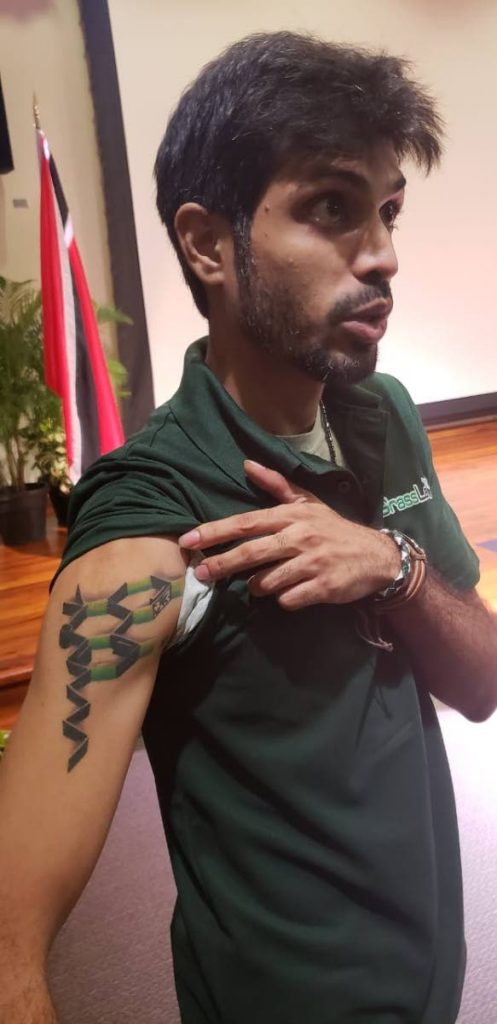Young people should not use ganja

People under 25 should not smoke marijuana, as their brains are are not fully developed until that age. If they are genetically predisposed to psychotic diseases, then it can be harmful.
This was the view of Dr Anthony Pottinger, a gynaecologist and oncologist who has done extensive research on medical cannabis. He was a panellist at the second public consultation on the decriminalisation of marijuana held on Wednesday at the Teaching and Learning Centre of the University of the West Indies, St Augustine.
“A small amount of any population are genetically predisposed to psychosis, but if those people start to use marijuana at a young age with heavy use – I’m talking about those with less sense than adults – with heavy use for a prolonged period of time, nobody is disputing this could cause brain damage,” he said.
The other panellists were Attorney General Faris Al-Rawi who led the discussion on Government's behalf; Minister in the Ministry of the Attorney General and Legal Affairs Fitzgerald Hinds; and cannabis expert and consultant Marcus Ramkisoon.
While Pottinger dispelled the idea that people who smoked marijuana would lose their ambition and risk developing schizophrenia, he did not support young people using marijuana at all.
But while it is bad for young people, Pottinger said there were many health benefits of cannabis.
Eighty-one-year-old Frank Mouttet told the audience about his involuntary tremors. He said he had never bought or sold marijuana, but a friend suggested he try CBD oil.
Pottinger advised that different combinations of tetrahydrocannabinol (THC) and cannabidiol (CBD) would work for different people, and that range of CBD might not have been effective for him.
Though the oil did not work for Mouttet, he still supported the legalisation of drugs.
“Legalise the drugs now. Not only legalise marijuana, but legalise all drugs,” he said.
Mouttet referenced Portugal, which decriminalised the possession and consumption of all drugs in 2001.
According to a Guardian UK article by Susan Ferreira titled, "Portugal’s radical drugs policy is working. Why hasn’t the world copied it?" instead of being arrested, people found with a personal supply of drugs were given a warning, fine or told to see a doctor or social worker.
Portugal had a rabid opioid crisis in the 80s. After the decriminalisation, there was a decrease in problematic drug use, overdoses and the rate of HIV and hepatitis infections dropped. However, the article said the laws were not the cause of the mitigation of the drug crisis, but the social services put in place for addicts.
Ferreira wrote, “In many ways, the law was merely a reflection of transformations that were already happening in clinics, in pharmacies and around kitchen tables across the country. The official policy of decriminalisation made it far easier for a broad range of services (health, psychiatry, employment, housing etc) that had been struggling to pool their resources and expertise.”
Writer Raymond Ramcharitar said addiction was caused by childhood trauma, and addicts abused drugs as a means to cope with their pain, yet addicts were demonised by many.
He said, "People do not use drugs because they are evil."
Asked why the Government is choosing to decriminalise instead of legalising marijuana
, Attorney General Faris Al-Rawi said the government wanted to take that process in phases so it could control the process.
In TT's case, marijuana decriminalisation refers to removing fines and penalties for possession of small quantities of the drug and it's use for medical purposes while broader legalisation would allow for legal cultivation, sale and distribution of the plants and its by products.


Comments
"Young people should not use ganja"